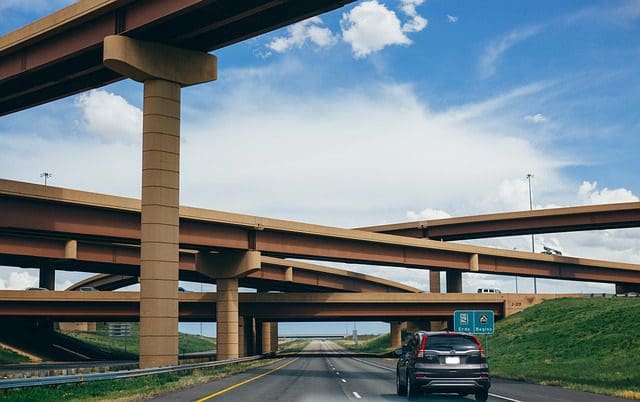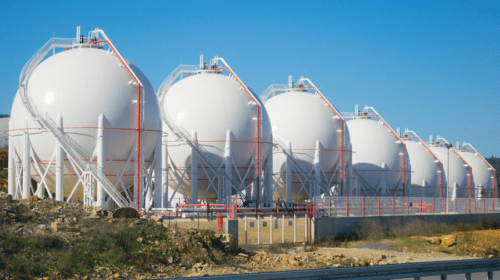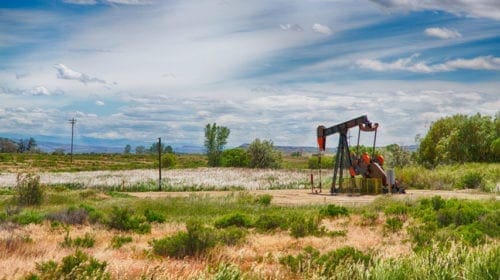After 140 days of intense work at the state capitol in Austin, the 86th Texas Legislature officially adjourned Sine Die on May 27, 2019. During this year’s legislative session, 7,324 total bills were filed for consideration — including 4,765 bills in the Texas House, and 2,559 legislative proposals in the Senate chamber, of which 1,429 bills passed out of both chambers.
Amongst those bills successfully advanced by the legislature were solutions to boost funding for transportation infrastructure and roadway systems across the state. Quality infrastructure benefits local communities, protects millions of individuals utilizing roads on a daily basis and promotes a healthy and vibrant economy. The oil and natural gas industry in particular relies heavily on Texas’ network of highways and roads to transport energy resources that fuel of our daily lives. It is of critical importance that the industry have access to safe, reliable roads near major energy corridors to enable continued oil and natural gas operations, and connect producers in the oilfield to supporting facilities.
With record levels of production occurring in the state, as well as rising severance tax collections, counties are in need of funding that would allow them to construct, repair, and maintain county roads that facilitate heavy traffic related to this production. Additionally, there have been calls to focus funding to the areas of greatest need. The following are some of the top legislative proposals from the 86th Legislative Session relating to transportation infrastructure investment, road repair and maintenance – a top priority for TIPRO and the Texas oil and natural gas industry for many years:
House Bill 1, the state budget, appropriates $118.859 billion in general revenue funds; $6.19 billion in general revenue dedicated funds; $86.439 billion in federal funds; and $39.165 in other funds; for an all funds total of $250.652 billion (compared to $216.758 billion in the 2018-2019 biennium; $216.399 in the 2016-2017 biennium and $196.9 billion in the 2014-2015 biennium). The bill was instrumental to securing necessary road funding for counties impacted by increased oil and gas activity. House Bill 1 included $125 million for the purpose of targeting funds for counties near Texas’ energy zones to address critically needed road infrastructure.
Senate Bill 500 was the 86th Legislature’s supplemental funding bill. The bill was also essential in securing necessary road funding to counties in Texas impacted by increased oil and gas activity. Senate Bill 500 included an additional $125 million to help local counties address transportation needs. Using House Bill 1 and Senate Bill 500, the industry and legislature were successful in securing a total of $250 million for transportation infrastructure in counties most impacted by increased oil and gas activity.
House Bill 1 and Senate Bill 500 became effective in May and have been sent to Texas Comptroller Glenn Hegar for implementation.
Other measures approved by the legislature this session focus on a disbursement mechanism for funding to improve county road infrastructure in energy-producing areas. House Bill 4280 modifies the mechanisms by which this grant program functions in order to more efficiently ensure the greatest benefit to these counties which, in turn, generate significant severance tax revenue back to the state for appropriations to statewide areas of need. House Bill 4280 was sent to Governor Greg Abbott for his approval on May 29, 2019. The governor has until June 16th to sign, veto or allow the bill to become law without his signature.
Finally, House Joint Resolution 82 and its enabling legislation, House Bill 2154, would have created the “Generate Recurring Oil Wealth for Texas Fund” (GROW Texas Fund) that utilized severance taxes for specific re-investment in Texas oil and gas areas that have experienced “increased production.” The money would then have been used exclusively to: expand and improve highways and public roads, increase law-enforcement and first responder salaries, establish greater access to healthcare, and revitalize education and skilled-workforce opportunities by dedicating money to teachers, schools, colleges and universities. While the proposed policy did not pass out of the legislature this year, in the interim session, lawmakers are likely to continue evaluating the initiative for action in the 87th Legislative Session.
TIPRO appreciates the attention of the state legislature on this critical issue, as well as the support from Texas Governor Greg Abbott and other officials to ensure infrastructure needs are properly addressed in the Lone Star State. TIPRO, along with the entire oil and gas industry, remains committed to continue working with all stakeholders on solutions that further improve the quality of state and county roads.
TIPRO is a trade association representing the interests of nearly 3,000 independent oil and natural gas producers and royalty owners throughout Texas. As the largest statewide association in Texas that represents both independent producers and royalty owners, members include small businesses, the largest, publicly-traded independent producers, and mineral owners, estates, and trusts.
Oil and gas operations are commonly found in remote locations far from company headquarters. Now, it's possible to monitor pump operations, collate and analyze seismic data, and track employees around the world from almost anywhere. Whether employees are in the office or in the field, the internet and related applications enable a greater multidirectional flow of information – and control – than ever before.










